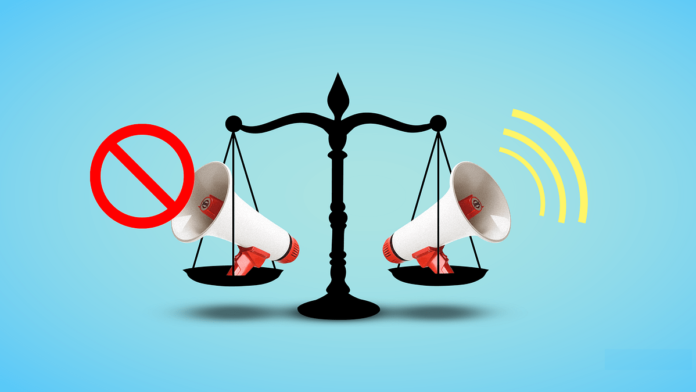- In this age of digitization, social media, artificial intelligence, and internet/internet-of-things passing on the information flow in real quick time, it is baffling to know why our law enforcing agency continues to bookcases under Section 66(A) even after the Supreme Court scrapped the same as unlawful in 2015 defies logic. It shows our law enforcers in an extremely poor light for paying scant regard to the happenings on the legal front. For the uninitiated, Section 66(A) of the Information Technology Act, 2000 criminalizes the sending of offensive messages through a computer or other communication devices online which is punishable by jail.

PC: Anubhav Pandey
- The untenable law was viewed by the Supreme Court as an impediment to free speech, and therefore, against the right to freedom of expression as it penalized offensive messages online while failing to define offensiveness. Events leading up to the scrapping were accompanied by the widespread misuse of the law what with police booking those people who were critical of political authorities for various acts of omission and commission. In a bewildering revelation, it was reported that at least 799 cases are still pending against people under the scrapped act.
- Findings published by digital advocacy group Internet Freedom Foundation in collaboration with Civic Data Lab, covering eleven states, show that almost 1,307 cases were registered even after the Apex Court declared the law unconstitutional. It is beyond comprehension why the police still apply the statute after being nullified highlighting the level of illiteracy prevalent amongst the law enforcers. Is it because the law enforcement agencies are found to go any distance to please their political masters often taking blind recourse to draconian provisions without realizing their validity or scope? Or is it simply a case of ignorance in failing to keep updating on the legal front?

PC: focusdatasolutions
- As the majority would readily concur, the law enforcers have been found guilty of liberally using the draconian National Security Act as well as sedition charges to not only curb legally permitted dissenting voices but also with an ulterior motive of currying favor with ruling parties and social groups linked to them. More befuddling to note this is gaining traction by the day despite the SC guidelines protecting free speech against draconian legal provisions. The bane of unholy nexus prevalent between the political leaders-bureaucracy-police-business/influential men continues to thrive unabated no matter howsoever strong the public opinion against the despicable practice.
- Concerned citizens in the know would recollect the SC diktat to reform the police forces to make them independent of political influence is gathering dust with no inclination whatsoever visible to act from the Union Government’s end. No wonder, all appointments, and transfers of officers are still dictated by political preferences. Why successive Central Government fails to usher in institutional effectiveness in the police forces to be a strong and independent immune from political meddling is a big mystery. Maximum governance, minimum government exhortations sound hollow when not followed up with crying reformist measures. Time to walk the talk!






